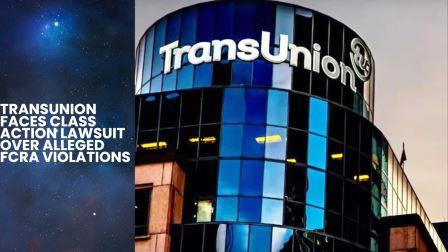TransUnion, one of the largest consumer credit reporting agencies in the United States, is currently embroiled in a class action lawsuit. The case, initiated by Connie L. Jackson, alleges that TransUnion violated the Fair Credit Reporting Act (FCRA) by furnishing a consumer report to a fraudulent debt collector. This lawsuit underscores significant concerns about consumer privacy and the responsibilities of credit reporting agencies.
Background of the Case
The case centers on an incident where Connie L. Jackson, the lead plaintiff, received a scam debt collection letter from a fraudulent entity known as Blackwater Legal Group in September 2022. The letter falsely claimed that Jackson owed $980.76 for a line of credit with Cashnet USA and threatened legal action if the debt was not paid. This letter was sent after TransUnion allegedly furnished Jackson’s consumer report to Liberty Credit Management, a third party associated with Blackwater Legal Group.
Allegations Against TransUnion
The lawsuit accuses TransUnion of several violations of the FCRA, including:
- Unlawful Furnishing of Consumer Reports: TransUnion is accused of violating section 1681b of the FCRA by furnishing consumer reports for impermissible purposes. The lawsuit alleges that TransUnion provided Jackson’s report to Liberty Credit Management without verifying the legitimacy of the debt collector, leading to the dissemination of fraudulent debt collection letters.
- Failure to Implement Reasonable Procedures: The complaint also asserts that TransUnion violated section 1681e(a) of the FCRA by failing to maintain reasonable procedures to limit the furnishing of consumer reports to legitimate purposes. The lawsuit argues that TransUnion did not conduct sufficient due diligence to verify the legitimacy of Liberty Credit Management.
- Invasion of Privacy: By providing consumer reports to a fraudulent entity, TransUnion is accused of invading the privacy of Jackson and countless other consumers. The lawsuit emphasizes that TransUnion’s actions represent a significant breach of the privacy protections enshrined in the FCRA.
The Impact of Debt Collection Scams
Debt collection scams, like the one allegedly facilitated by TransUnion, can have serious consequences for consumers. Victims may face:
- Damage to Credit Scores: Unauthorized inquiries and fraudulent debts can harm a consumer’s credit score, making it harder to obtain credit in the future.
- Unwarranted Legal Threats: Scammers often use threats of legal action to coerce consumers into paying non-existent debts.
- Emotional Distress: Dealing with false debt claims can cause significant stress and anxiety for consumers.
Legal Ramifications for TransUnion
If the class action lawsuit is successful, TransUnion could face substantial financial penalties. The lawsuit seeks to represent anyone in the United States who had their consumer report furnished by TransUnion to Liberty Credit Management or similar entities for impermissible purposes within the past five years. Under the FCRA, consumers whose rights have been violated may be entitled to statutory damages ranging from $100 to $1,000 per violation, as well as punitive damages, attorney’s fees, and court costs.
The Broader Implications
This lawsuit serves as a critical reminder of the importance of consumer privacy and the need for stringent oversight of credit reporting agencies. The outcome of this case could set a precedent for how courts handle similar allegations and may lead to stronger protections for consumers in the future.
Protecting Yourself from Debt Collection Scams
For consumers, this case highlights the importance of vigilance in monitoring credit reports. Regularly checking your credit reports for unauthorized inquiries and disputing any inaccuracies can help protect against potential scams. If you receive a suspicious debt collection letter, consider sending a Debt Validation Letter to the collector and reporting the incident to the Federal Trade Commission (FTC).
Let’s Summarize
The TransUnion class action lawsuit underscores serious concerns about consumer privacy and the responsibilities of credit reporting agencies under the FCRA[see Complain]. The case, which involves the unlawful furnishing of consumer reports to a fraudulent debt collector, could have significant implications for both TransUnion and consumers across the United States. As the lawsuit progresses, it will be essential to monitor how the courts address these allegations and what steps TransUnion will take to rectify the situation and prevent future breaches of consumer trust. For consumers, staying vigilant and regularly checking credit reports is crucial to protecting against potential scams and unauthorized use of their personal information.
See Also- What Happens If You Don’t Sign a Reaffirmation Agreement

Thank you for your sharing. I am worried that I lack creative ideas. It is your article that makes me full of hope. Thank you. But, I have a question, can you help me?